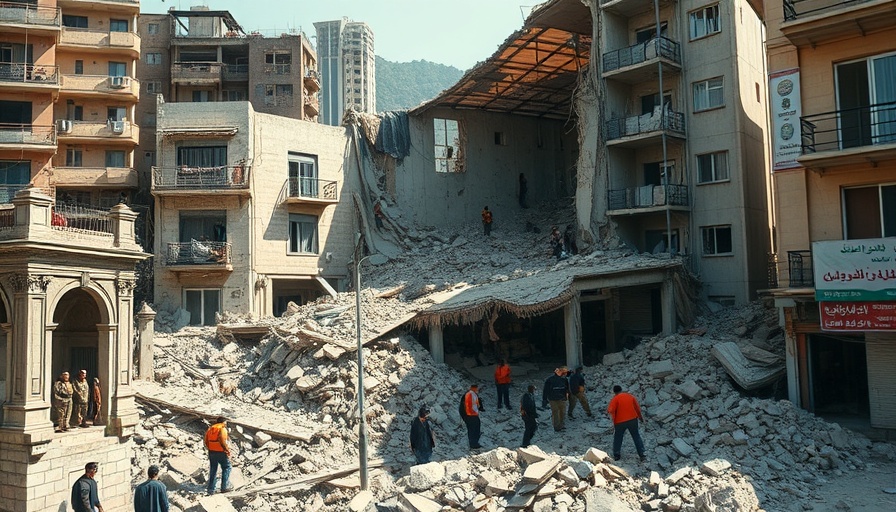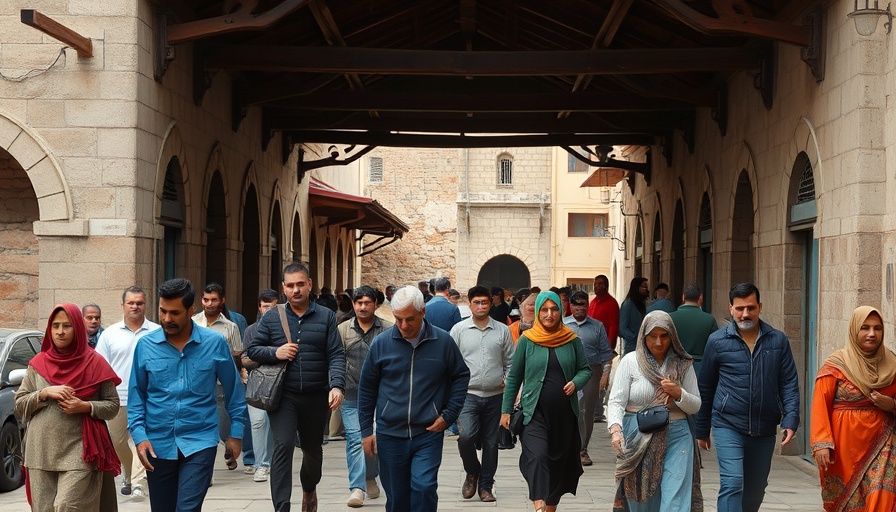
A Sudden Shaking in Turkey: What We Know So Far
A magnitude 6.1 earthquake shook the residents of Turkey's Balikesir province on August 10, 2025, leaving a path of destruction and sadness in its wake. The epicenter was located in the town of Sindirgi, where the tremors were felt as far as 200 kilometers (around 125 miles) away in Istanbul, a bustling metropolis of over 16 million people. This significant seismic event has resulted in the tragic loss of one life and has injured at least 29 others, highlighting the pressing need for improved safety measures in earthquake-prone regions.
Casualties and Damage: The Immediate Aftermath
According to Interior Minister Ali Yerlikaya, the earthquake has led to the collapse of 16 buildings, many of which were abandoned and in disrepair. Among the casualties, an elderly woman who was initially rescued from the debris of a collapsed structure succumbed to her injuries shortly after. Rescuers were able to pull four other individuals from the rubble. Thankfully, no significant injuries were reported among the survivors, but the extent of damage to the local infrastructure raises concerns about preparedness and response strategies in Turkey.
A Historical Context: Turkey’s Earthquake Challenge
Turkey is located in a geologically active area, prone to earthquakes. The earthquake that hit Balikesir comes just a few years after a series of devastating tremors rocked the country, leading to more than 17,000 deaths in the 1999 İzmit earthquake. Following that disaster, Turkey made strides in improving its building codes and emergency response frameworks. However, with the current incident, it serves as a stark reminder that much work remains to be done.
Emotional Resonance: Community Response and Resilience
The emotional toll on the residents of Sindirgi and surrounding areas is palpable. As images of collapsed buildings flood the media, a sense of vulnerability resurfaces among the populace. Rescue teams are actively sifting through the debris while the government mobilizes resources to support those affected. People are urged to avoid damaged structures as aftershocks continue to rattle the region, with one reported aftershock measuring 4.6 on the Richter scale.
Counterarguments and Diverse Perspectives on Preparedness
While some experts advocate for more stringent building regulations, others argue that the focus should also be on community-based earthquake preparedness programs. Both perspectives reveal the importance of an integrated approach, blending engineering with public education to foster resilience. Community drills, clear evacuation plans, and education about earthquake safety are essential to ensure the populace is prepared when the next big quake strikes.
Future Predictions: Anticipating the Next Tremor
Geologists predict that due to Turkey's geological landscape, seismic activity may continue to pose a threat. The need for innovative technologies and engineering practices in constructing buildings cannot be overstated. Ongoing seismic studies and regular community drills are crucial initiatives that policymakers should prioritize to minimize risks in the face of future earthquakes.
The Role of Government and International Aid
Following the earthquake, President Recep Tayyip Erdogan expressed sympathies towards the affected families and reassured that all necessary measures would be taken to assist in the recovery efforts. International aid may also play an integral role in the recovery, as neighboring countries and global organizations often provide support during such crises. This collaborative spirit is vital in mounting an effective response to natural disasters.
Conclusion: Learning from Tragedies
The 6.1 earthquake in Balikesir stands as a stark reminder of the forces of nature and the vulnerabilities of human structures. In the face of tragedy, the focus must shift toward reinforcing building codes, enhancing community education on preparedness, and fostering stronger emergency response systems. As Turkey navigates this latest disaster, it must also draw lessons from it, focusing on resilience and proactive measures to protect its citizens from future seismic shocks.
By reflecting on these recent events and engaging in meaningful discussions, we can collectively strive for a safer future. Often, it's in the wake of disaster that communities unite to build back stronger and smarter.
 Add Row
Add Row  Add
Add 




Write A Comment